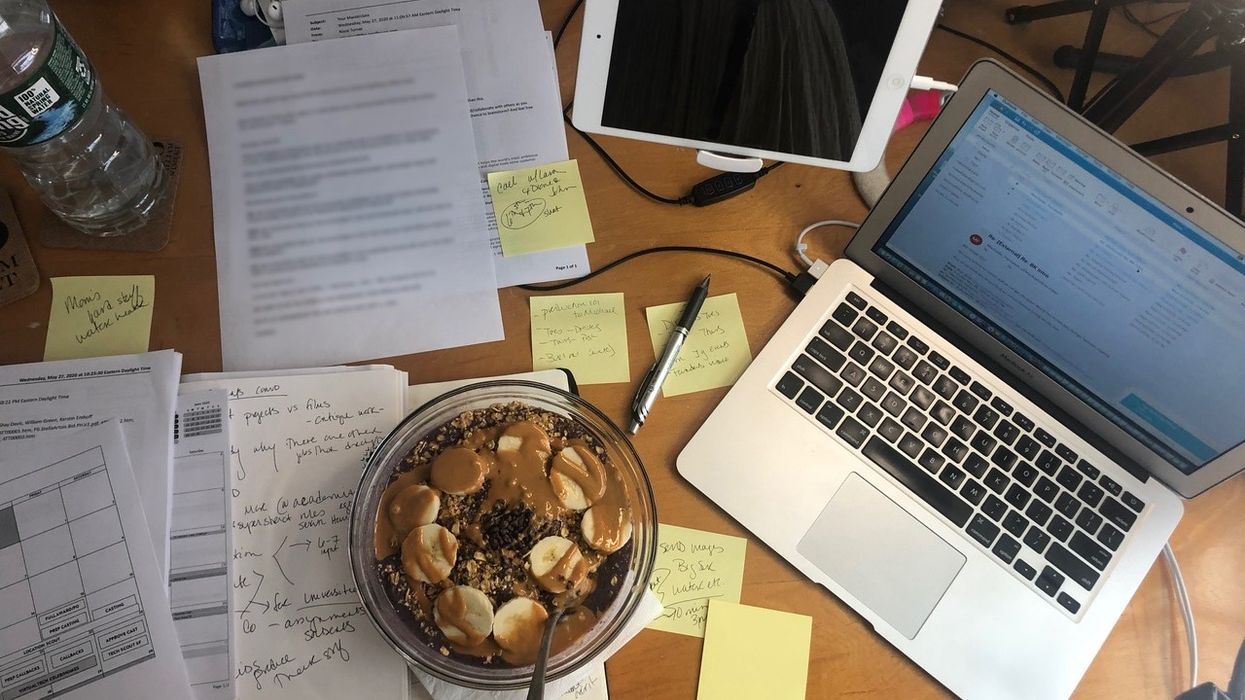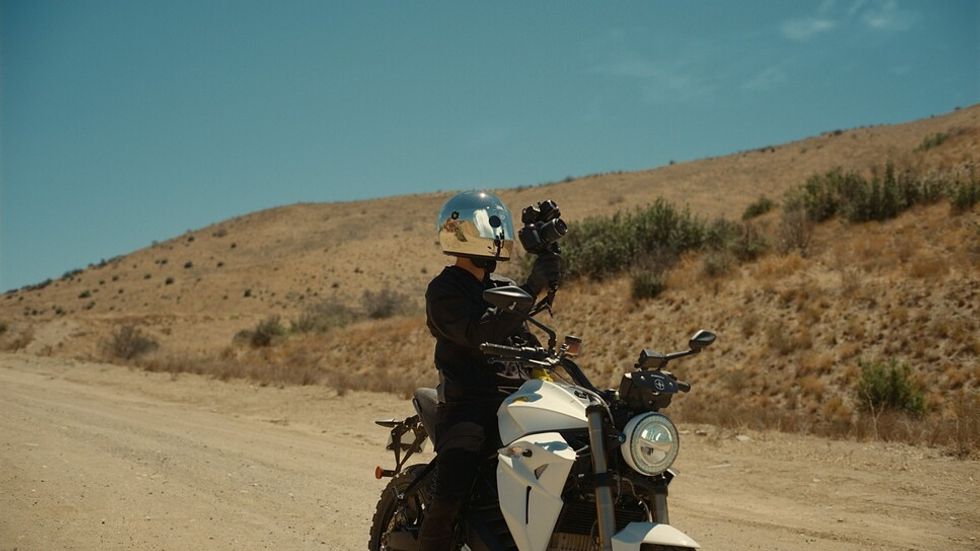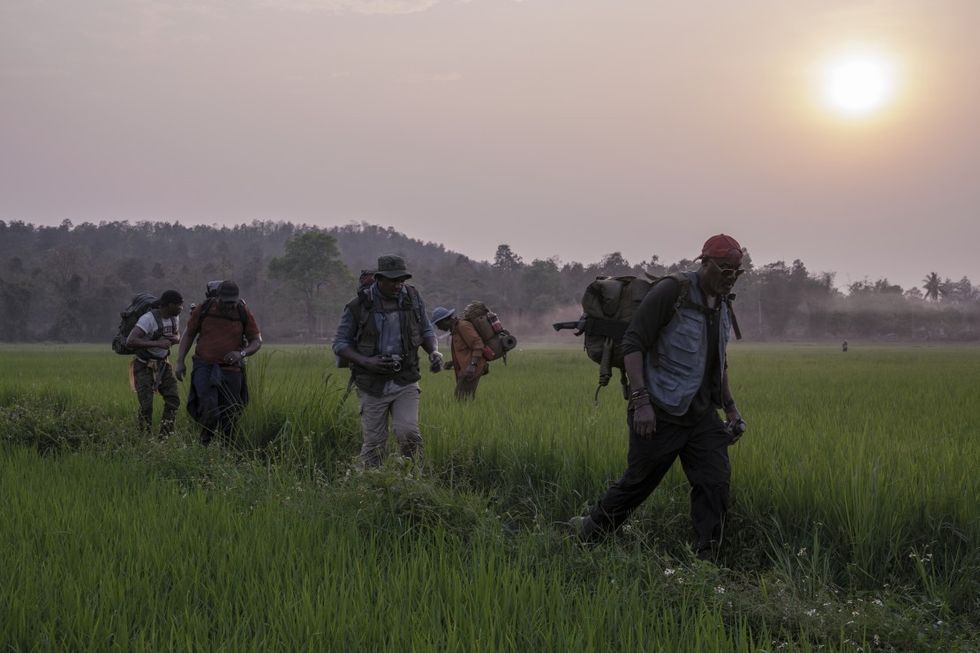Need Gigs? Poolhouse Wants to Get Producers Producing Again
The quarantine memes were hilarious… three months ago. Now, you’re staring at your blank schedule, asking where are the jobs?

If you’re not sure how to replace the networking and gig-creation of pre-pandemic set life, you’re not alone. Well, yes, you may be literally alone, but figuratively, there’s an army of talented producers collectively wondering the same thing: how do I stay connected and employed during this crisis? Enter poolhouse.
But, what is poolhouse?
Background
Created for and by producers, poolhouse started as a natural collaboration back in 2005 between three producers, Jill Auerbach, Erin Sullivan, and Veronica Beach, to share resources and recommend each other for jobs. “Three producers quickly turned into ten; ten turned into twenty; then into forty — and the decision was made to create a website featuring the producers so Ad Agencies could easily find freelancers,” explained Beach to No Film School.
In 2019, the team re-configured poolhouse to become a virtual hub where producers could meet each other, communicate, share resources, find jobs, and learn something. “And we wanted to include all producers — not just freelancers, not just agencies, but all producers — from Music, to Post, to Production,” added Beach.
Today's pandemic poolhouse
To cater to producers in these crazy times, poolhouse launched their new platform just last week. Now, it offers a place for producers to chat, remote production resources, as well as a platform to share projects and post public profiles to keep the jobs flowing. Experienced producers themselves (check out Veronica Beach with director Ridley Scott on a remote set below) the founders of poolhouse sat down with No Film School to explain the platform, what producers need right now, and how good producers should adapt to these challenging times.
NFS: Poolhouse was “created for producers by producers.” How does a producer use poolhouse? And how many producers would you say currently use it?
Pamala Buzick: We launched our new platform last Wednesday (07/15/20). We already have 250 members and over 2300 followers on Instagram. As a producer, you can create a limited profile (all profiles will be blown out in our 1.1 version arriving this Fall) where you can share your work. It can also act as your website, and work in concert with (or even replace!) your professional social media presence.
You can also chat with other producers. We wanted to provide a space for people to ask questions, look for resources or help, and receive instant feedback. As producers we need information fast — when you throw a bunch of producers together in a room, there are answers to your questions.
Jill Auerbach: We also wanted to provide a space to learn. For example, we have articles about how to read a production bid in our screening room and we’re preparing to post a bunch of templates that producers can download and use. Poolhouse will also help producers stay in the know about talent. Reps are sharing reels for directors, editors, and musicians so that producers can screen their latest work. Lastly, you can find jobs. Since launching we’ve had about 10 jobs come through. That doesn’t seem like a lot, but during COVID times, it is. What you get out of it is really up to the producer. One producer may find they like the chat feature, but don’t use the screening room. Or they really enjoy the screening room, but are too shy to chat… You need to get in and play.

"The most special trait of a producer is to be a chameleon."
NFS: Based on what you’re seeing on the platform, what are the main needs of producers right now?
Erin Sullivan: Information and community. We are in the midst of a real crisis and we need to unite and help each other — and quickly. We cannot allow production to halt again. We have to continue to find solutions so that people stay working and afloat.
"This is a great space to see all of that and fast, so we’re always staying on top of what’s new."
NFS: How is poolhouse (or users on poolhouse) tackling production in the times of coronavirus? How does the industry stay afloat amidst so much halted production and daily life?
Sullivan: Agency producers need to continue to help each other and stay in the know so that they continue to advise creatives and brands so the jobs keep flowing. This means production needs to keep finding new ways to reinvent the remote production and the partners in the process - specifically agency producers and other producers commissioning content. We need to continue to lift, support, and educate each other so that we keep going.
[Editor's note: For more on remote production, read our story with Sandwich video on how they kept shooting even during the strictest lockdown.]
NFS: If you’re a producer early in your career, what are some of the essential things you can learn or benefit from using poolhouse?
Auerbach: Early in your career the best advice is to watch and listen and then get out there and produce. As a member, we will have access to all the articles, templates, and everything we are making available on poolhouse. If you are just starting out, you can take advantage of the Internship room or film student room. There, you can meet other students from around the world and apply for internships — we have one internship up now actually. You can watch the way producers communicate and share, learning by example, or take advantage of the Zooms we are hosting, to watch and listen. When you join our community, you have the opportunity to network with seasoned professionals — and perhaps find your next gig.
"If we’ve made it this far, we'll emerge that much stronger."
NFS: What is the ‘Screening Room’ on poolhouse?
Veronica Beach: The screening room is a great resource. We have Director Zoom videos, articles on how to read a bid, templates for producing, Director and Editor reels, and CHEAT SHEETS. Reels let producers see what new talent is emerging. This is a great space to see all of that and fast so we’re always staying on top of what’s new. We also have the opportunity to showcase diverse talent and encourage greater representation within the industry moving forward. That’s very important to us. CHEAT SHEETS are like our take on Masterclass, but much shorter, covering a topic in under 10 minutes.
NFS: What do you think are the special traits of producers? What do you think is going to change about producers (and producing) coming out of this pandemic?
Sullivan: The most special trait of a producer is to be a chameleon. You adapt to the audience you are conducting. Production is an orchestra and it’s up to you how you play it. And then of course you must be creative, organized, strategic, savvy with money and have a great relationship with time because time management is key in producing.
What will change? Producers, really good producers, are built from the same DNA which is not to accept fear — we just move forward. I think coming out of this pandemic things will be so much easier. How could it honestly get worse than it already is? And if we’ve made it this far, we'll emerge that much stronger. But seriously, i think we will travel less, we will learn to do more with less, and we will put up with less BS. Because life is really too short.
Thank you Veronica, Pamala, Jill, and Erin!
Check out poolhouse for yourself here. If you join today, you get 60 days free.























